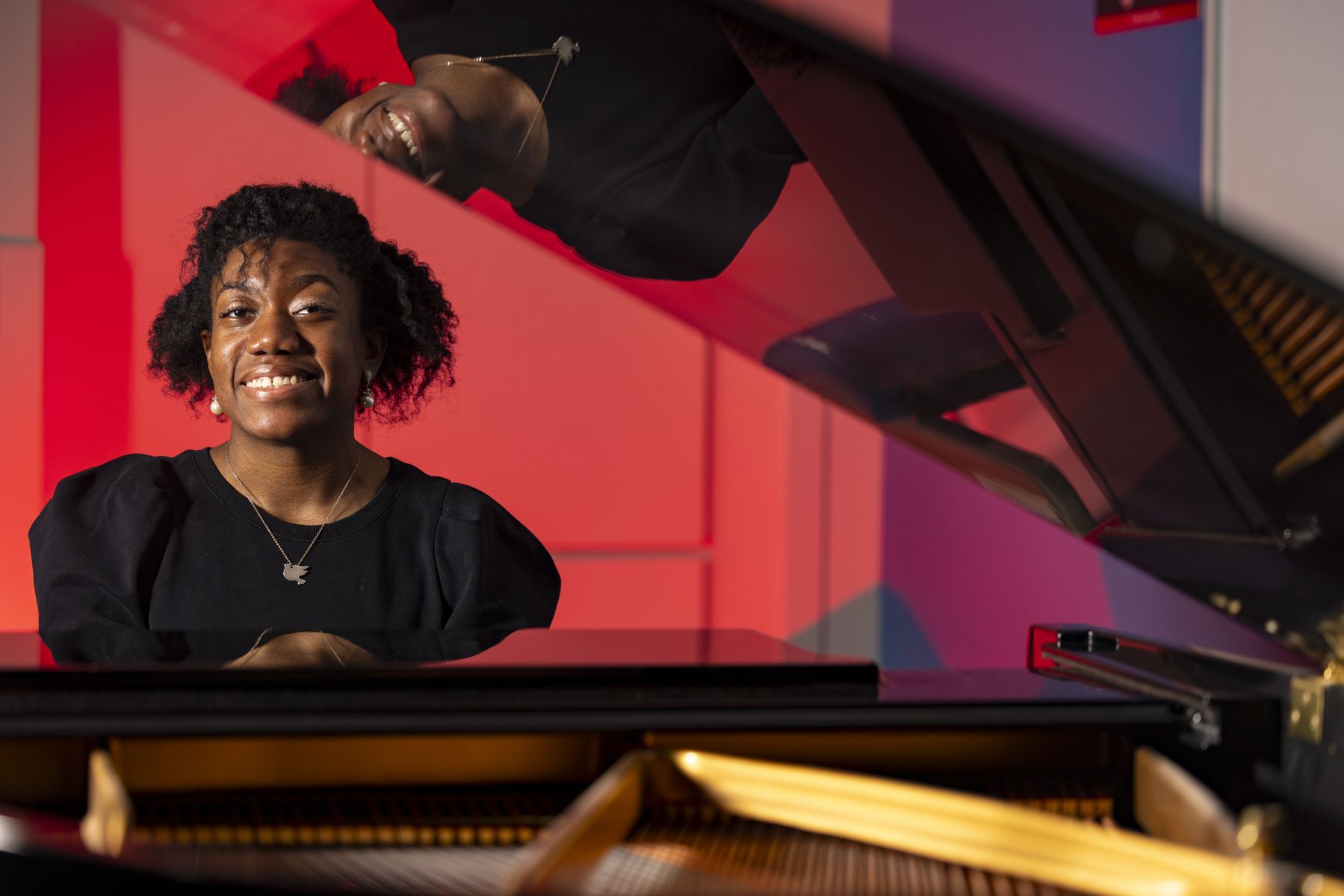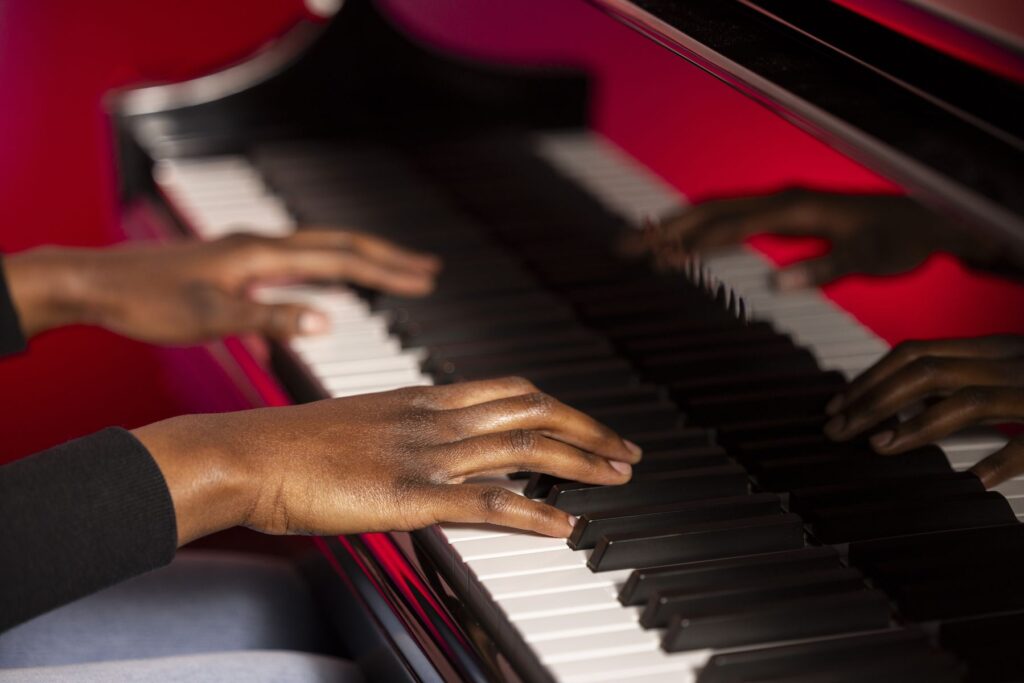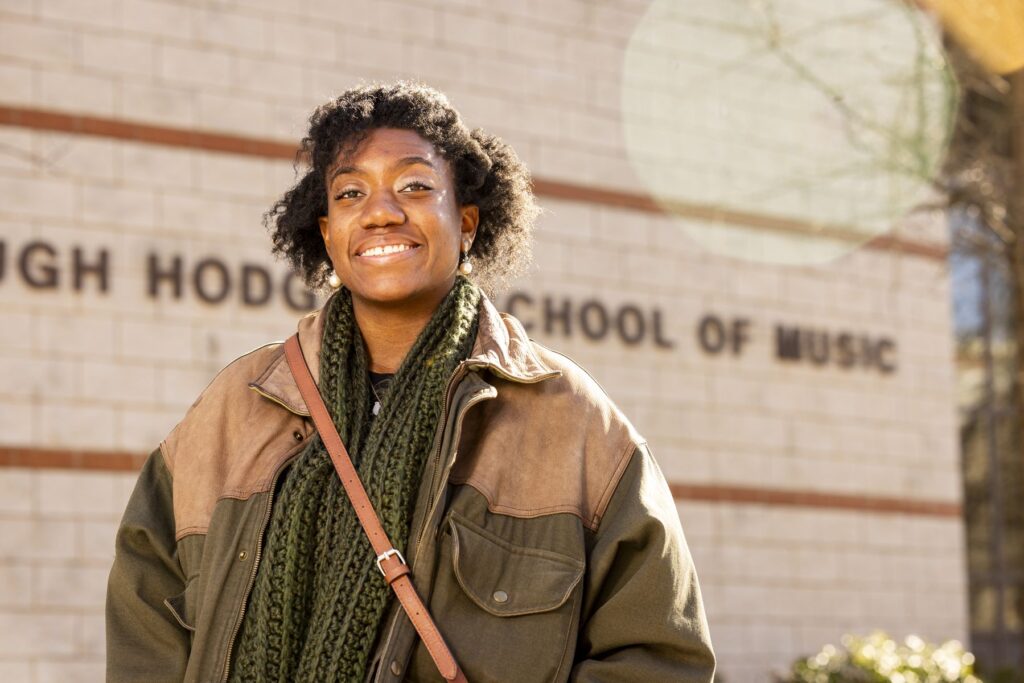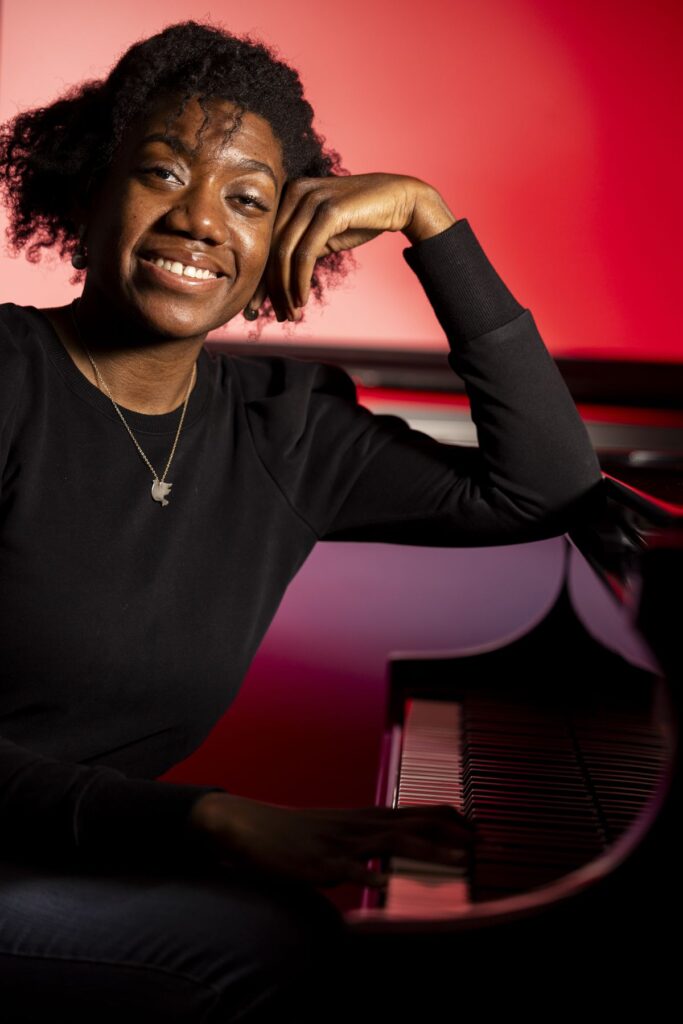
Playing in Perfect Harmony
Dr. Asia Simone Passmore.
That title was clear in one student’s mind almost from the moment she began studying piano. Fifteen years ago, Passmore fell in love with the piano, and it wasn’t long before she set her sights on a doctorate in music.
Passmore developed a profound interest in the piano as a teenager. But as a university student, she turned her attention to piano pedagogy to learn more about the history and educational practices of piano music.
“When I started, I didn’t know anything about the process, the amount of work it took to get to that level, or even what a Doctor of Musical Arts was. But I knew that I wanted to be Dr. Asia in the future,” says Passmore.
Passmore’s lifelong commitment to music and academia has paid off. She graduated from the University of Georgia’s Hugh Hodgson School of Music with a Doctor of Music Arts in piano performance and a doctoral minor in piano pedagogy. As she moves on to the next phase of her professional journey, Passmore is determined that her future will be anything but conventional.


Striking a New Chord
Performer or professor. These are the two paths that most musicians start on in college. But the further Passmore got into her degree the more she realized how many things she could do in music.
One of her most eye-opening experiences was an internship for the Frances Clark Center for Keyboard Pedagogy, a non-profit organization offering piano education resources for professionals and their students. Passmore helped to build a compendium of teaching videos created by different pianists. She later worked for their children’s magazine Piano Inspires Kids.
“I think that if more people knew about the different avenues in the field of music besides just performing or teaching, then more of them would pursue a music degree,” she says. “There’s arts administration and arts advocacy, event production and film scoring. You never know what doors can open up.”
Passmore has also presented and performed at national conferences and performed in masterclasses for world-class artists. Taking advantage of every experience that comes her way helped Passmore develop into a well-rounded musician, student, and scholar.
The Sound of Success
In 2023, Passmore earned the SEC Emerging Scholars Award, awarded to outstanding doctoral students who show promise as researchers and educators. Her research centered around solo piano music written by composers from across the African diaspora, as well as the transatlantic connections between the music and their composers.
Passmore’s research focus was sparked by the piano music of Afro-British composer Samuel Coleridge-Taylor. She became fascinated with his work and his connections to his Black music contemporaries, uncovering several works by some of these composers that were unknown and not widely accessible to the public. Passmore presented her findings in her dissertation, “Samuel Coleridge-Taylor and Transatlantic Connections in the Piano Music of Black Composers,” in a doctoral lecture recital that showcased both her performance and original academic contributions.
As a student, Passmore also conducted a research project on hymn-lining for an ethnomusicology course. Hymn-lining, a “call-and-response” form of worship which originated in Black churches, became a way for Passmore to connect her own family history and cultural roots. Several family members even got together to record themselves lining a hymn for Passmore to use for her research.
“I learned that you can never do too much research,” she says. “No topic is ever truly finished. Even when you think you’ve reached the end, there’s always more to unearth.”
Tuning into Opportunity
Since she first started her musical journey, Passmore has built a steady foundation for her career. She plans to continue sharing her research at conferences and turn her dissertation on piano music of the Black diaspora into a book. She wants to expand her research to offer a more comprehensive reference for future generations of musicians and educators.
“I am so thankful to have access to research on a topic that would otherwise have been left in obscurity,” she says.
“Now, when I approach music, especially for research, I get to do so with the confidence that I am an expert in my own right.”

What’s next for the pianist, researcher, and educator?
Passmore has considered continuing to teach private lessons, leading academic workshops, performing and sharing her research.
For now, she’s satisfied to keep her options open.
“My academic background will guide my career, whatever direction it takes,” she says. “Life is too short and too full of possibilities to not explore every path that you can.
“No matter the future that’s in store for me, I’m ready.”
Written by: Jayne Roberts
Photography by: Dorothy Kozlowski
Design by: Andrea Piazza